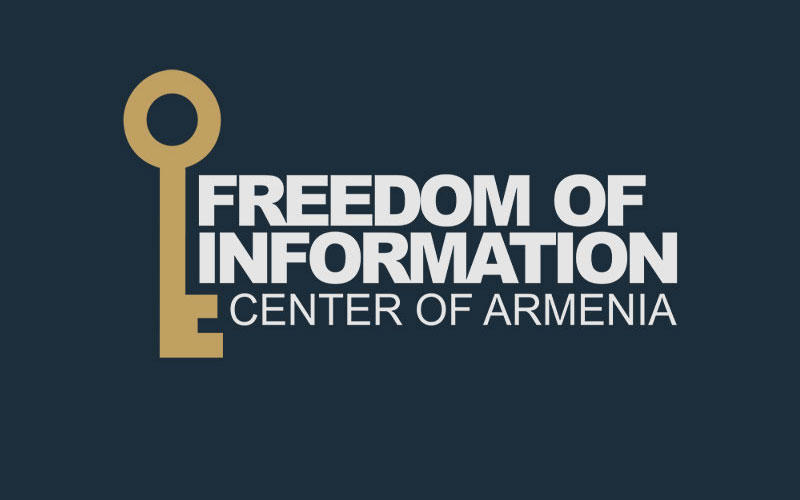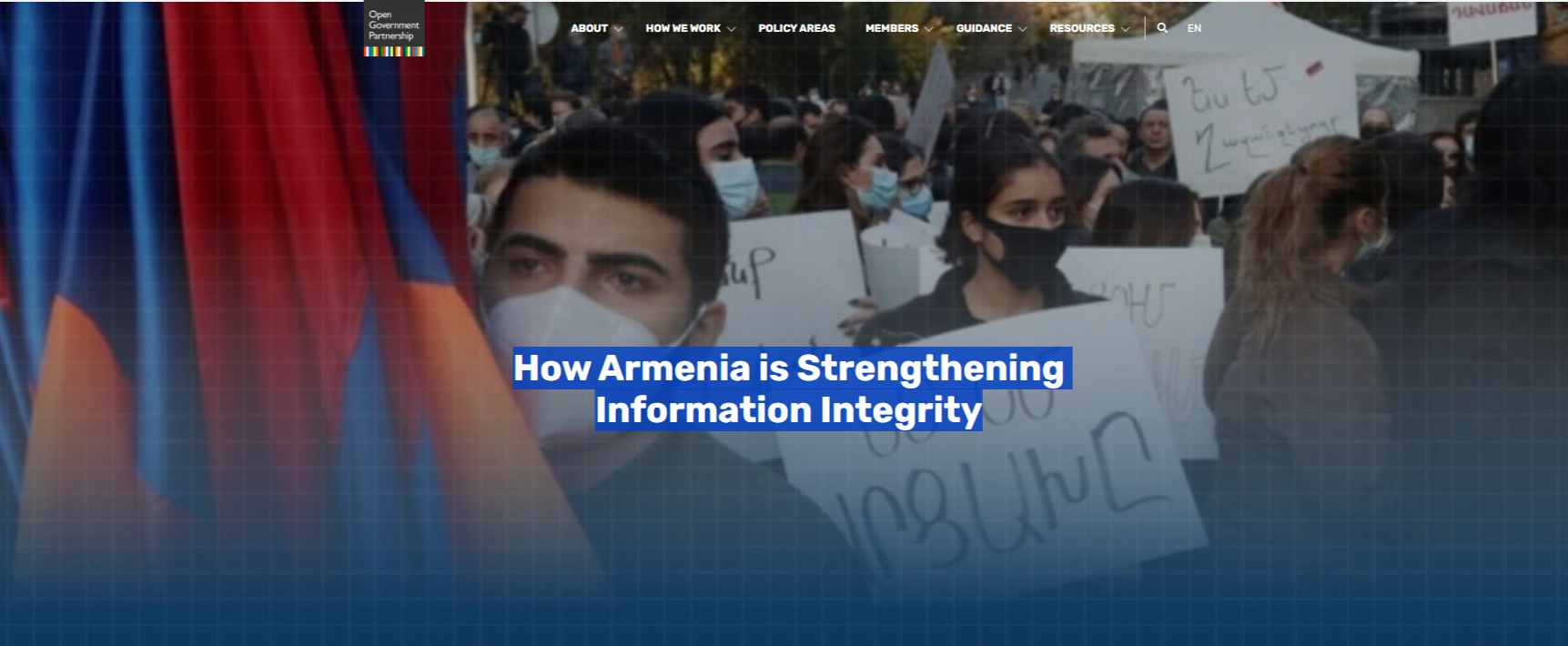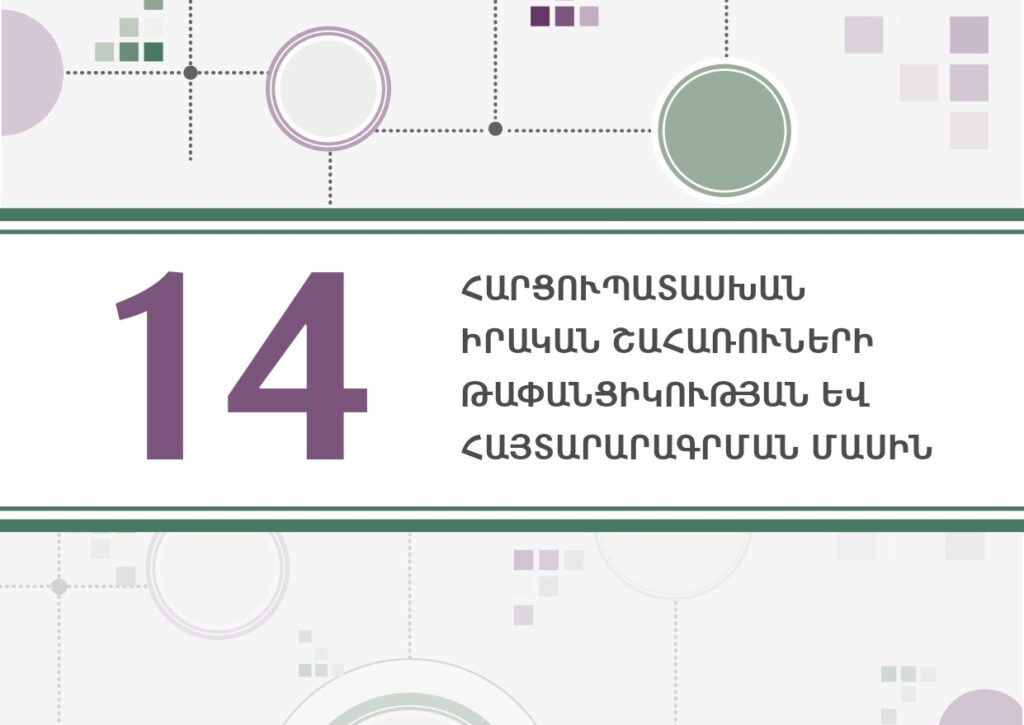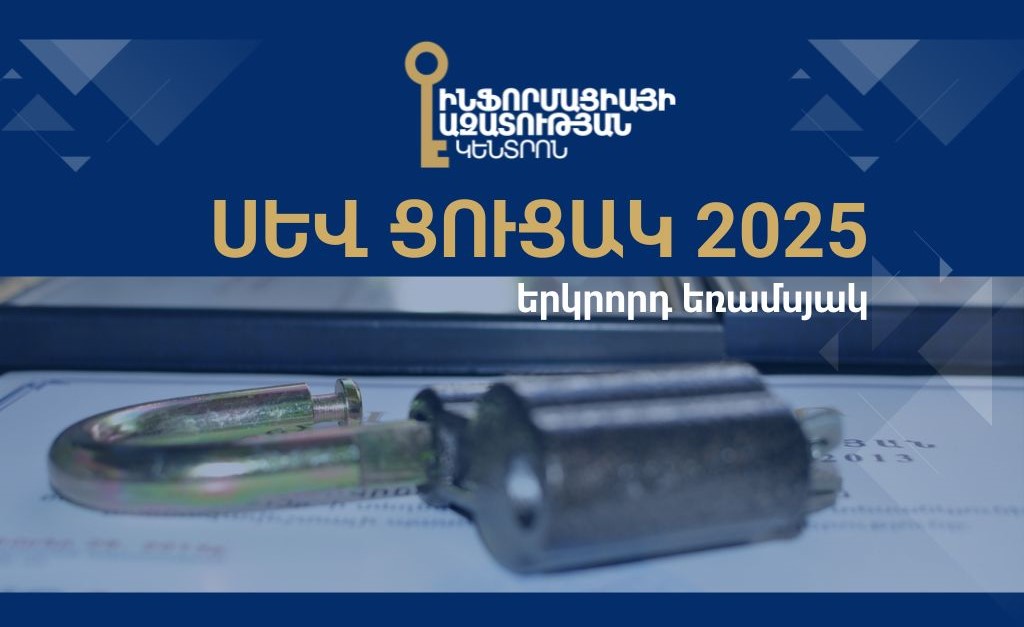– Kotayk is the first marz in Armenia were the Mulberry electronic system was introduced. Why did they select your marz?
K. SH.- Introduction of the Mulberry electronic system for document circulation was purely our desire; we had thought about introducing the system years ago. We piloted a number of models, carefully examined the marzpetaran’s professional, human resource and technical capacities, and came up with this initiative, which became a reality on the first of April of this year. I am grateful that specialists from the RA Ministry of Territorial Administration provided consulting and methodological support on this issue. I am confident that the program will be fully introduced in the public administration, local self-governance and many other agencies and institutions. However, I must say that, being the first marz to introduce this novelty, Kotayk has the responsibility to use it as effectively as possible. The weight of this responsibility contributes to our making full use of the electronic document circulation system.
– How do you ensure electronic circulation of documents with other community leaders?
K. SH.- Immediately after the Mulberry system was introduced, we recommended to all the communities, educational and healthcare institutions with internet connection that from now on they should send documents to marzpetaran only by e-mail to kotayk-region@mail.ru. This step made it possible to avoid unnecessary administrative procedures and save time. At the moment, the organization of this work is fully under control and we manage to avoid all the procedural difficulties associated with transporting paper documents, which resulted in an increased quality of work. Incidentally, a couple of dozens of our communities have expressed an interest in the Mulberry system. We have requested the RA Ministry of Territorial Administration to help us and we expect that many communities throughout the marz will be able to use this program in the near future.
– The Mulberry system has been in operation for a few months already in your marz. Can we already talk about the system’s advantages and disadvantages?
K. SH.- We can definitely say that in the last few months we have witnessed only advantages of the system, which greatly contributed to increasing the effectiveness of administrative work and expanding the available opportunities. From now on, the daily work of marzpetaran’s staff is free of boring routine associated with cumbersome paperwork, and they are able to carry out their duties more completely. Having said that, our observations and analysis show that it would be desirable to introduce this system in many more agencies, which would result in much more positive developments in connection with this program.
– Introduction of the Mulberry system also makes it possible to reply to letters more quickly. Is there any statistics on this?
K. SH.- All the letters, documents or complains received by marzpetarans are replied to without any delay, regardless of how they were received – on paper or electronically. The replies have always been provided within the deadline specified by the RA Law on Freedom of Information and the marzpetaran’s rules of operation. However, before introducing the electronic program, adherence to deadlines was controlled by continuously flipping through multi-volume registers, whereas now this is done by pushing one or two keys on a computer keyboard, which obviously has changed the whole logic of the procedure.
– Is there a clear distinction between letters/complaints and requests for information during electronic circulation of documents?
K. SH.- This distinction existed both before and after; however, it is undeniable that the electronic format is more precise, it requires more specific classification of documents and it continuously simplifies the requirements for all this.
– What other steps towards openness and transparency are being taken in your marzpetaran?
K. SH.- Having an official website can be considered an important component of openness and transparency. Through its various sections, the website presents almost all the areas of marzpetaran’s activities and covers various events taking place in the marz. Also, website visitors have access to all the decisions and orders issued by the Kotayk marzpet, marzpetaran’s and its structural units’ action plans, monthly schedules, information about community leaders and their activities, composition of municipal councils and community budgets, as well as information required to be made public by the RA Law on Freedom of Information. The website is being improved constantly.
The mass media operating in the marz plays an important role in this area. The media regularly covers the developments in the marz and the main areas of marzpetaran’s activities. Issues of public importance are discussed during frequent live broadcasts, and main methodology of public awareness raising is outlined. Round-table discussions, talk shows and debates on issues related to various structural units’ activities are frequently organized by marzpetaran’s initiative.
A lot of importance is given to public relations initiatives, which are based on weekly reception of citizens and on the content of issues raised by the public in the marz. Community leaders have already started reporting to the public, and the quality of this process will continue to improve over time. Press conferences, television programs and newspaper articles will be arranged in connection with this reporting. Information boards provided to various communities around the marz by the Freedom of Information Center were a special way to promote openness and transparency. Very recently, the marz council discussed and analyzed the application of the RA Law on Freedom of Information in communities and issues related to public information during its regular meeting. During this discussion, a recommendation was made to community leaders to make appropriate amendments in community service job descriptions so that one community servant in each community assumes information and public relations functions. This would ensure proper openness of local self-governance bodies’ activities. However, this is not all. There is a lot to do in this area and there are many initiatives out there that will be presented to the public in great detail in the future.











